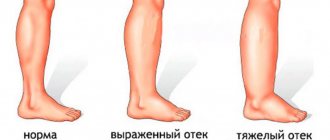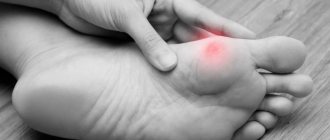The ability to hear is a very important human ability, thanks to which it becomes possible to contact the outside world, perceive external sounds, and communicate with other people. Impaired hearing leads to a deterioration in the quality of life. A decrease in the acuity of perception causes absent-mindedness, weakened thinking, and learning difficulties. And the mere fact that when communicating with other people you have to constantly ask again does not increase self-confidence.
In medicine, there is a diagnosis that characterizes such a condition as hearing loss in adults - hearing loss. The degree of hearing loss (decreased hearing ability) can vary from partial hearing impairment to complete deafness.
According to statistics, more than ten million Russian citizens suffer from hearing loss or hearing loss, including about one million minors.
This pathology occurs even in newborn babies. If a decrease in hearing sensitivity occurred during the mother’s pregnancy or during the first year of life, restoring hearing will be very difficult, since babies have not yet heard sounds and speech.
Maintaining 100% hearing is not an easy task. If you feel that your hearing is deteriorating, immediately contact an otolaryngologist.
How our ear works
To understand why there is a decline in the ability to detect and understand sounds, let's look at how the elements of the ear system function.
The visible part of the ear, called the outer ear, is like a locator and detects sound vibrations created by a noise source. The sound then travels through the ear canal and reaches the eardrum. This, in turn, moves the auditory ossicles located in the middle part of the ear. The signal enters the inner part of the ear (cochlea), where it is converted into microimpulses and sent directly to the brain.
A decrease in hearing abilities may be associated with disruptions in the functioning of one or more elements of this chain.
Forms of hearing loss
Decreased sound perception can affect one ear or both. Therefore, they distinguish between unilateral and bilateral hearing loss.
If the cause of hearing loss is associated with a decrease in sound perception of the outer and middle ear, we speak of conductive hearing loss.
A decrease in the function of the auditory receptors of the inner ear leads to another type of disease - sensorineural hearing loss. This diagnosis is the most common.
Make an appointment right now!
Call us by phone or use the feedback form
Sign up
There is a third type of disease - a mixed type, which includes a combination of the first two types of hearing loss. This diagnosis is the most complex and involves drug, surgical treatment, and in some cases, the use of hearing aids.
In medicine there is such a term - “audibility threshold”, which characterizes the minimum volume that a person can hear without echo and extraneous noise. A healthy person is able to perceive sounds with a volume of 20 decibels or lower. This condition is what they call “good hearing.” Depending on the value of the hearing threshold, four degrees of hearing loss are distinguished:
- I degree (mild) - the hearing threshold is from 20 to 30 decibels, a person picks up sounds at a distance of 4-6 meters;
- II degree (medium) - the hearing threshold is from 31 to 50 decibels, a person hears at a distance of 1 to 4 meters;
- III degree (severe) - the threshold of sound perception is from 51 to 70 decibels, a person hears spoken speech up to 1 meter;
- IV degree (deep) - hearing threshold from 71 to 90 decibels.
We call deafness a decrease in the level of sound perception above 90 decibels.
The disease, in turn, is characterized by a gradual or rapid decrease in the perception of sound waves. A decrease in the ability to distinguish sounds occurs throughout life, but hearing loss can also be congenital.
Literature
- Bayrakov V.I. Disability due to ear diseases in the adult population and ways of developing social rehabilitation and integration of disabled people. – M., 2007. – 41 p.
- Zhuravsky S.G. Application of hirudotherapy in the treatment of patients with chronic sensorineural hearing loss // News of otorhinolaryngology and logopathology. − 2001. – No. 1. – P. 41–48.
- Izmerov N. F., Suvorov E. A., Prokopenko L. V. Man and noise. – M.: Geotar-med, 2001. – 384 p.
- Matkuliev Kh. M., Muminov A. I. Pathogenetic rationale for the preventive action of trental and eleutherococcus in ototoxicosis of gentamicin etiology // Current issues of otorhinolaryngology. Sat. scientific tr. – Tashkent, 1992. – P. 52.
- Guide to otorhinolaryngology / ed. I. B. Soldatova. – M.: Medicine, 1994. − 367 p.
- Sukhanova Yu. V., Rymsha M. A., Pedder V. V. Complex effects of laser therapy, magnetic therapy and electrical stimulation on the inner ear // Modern problems of pathology and physiology of hearing. – M., 2001. – 149 p.
- Sukhanova Yu. V., Rymsha M. A., Pedder V. V. Physiotherapeutic treatment of hearing impairment and tinnitus // News of otorhinolaryngology and logopathology. − 2002. – No. 1. – P. 112–114.
- Federal clinical guidelines for the diagnosis, treatment and prevention of noise-induced hearing loss. – M., 2015. – 43 p.
Hearing problems: symptoms
Signs of decreased sensitivity to sounds and decreased noise effect may appear gradually, although they can develop rapidly. With a sharp decrease in hearing, the prognosis is favorable; the main thing is to seek professional medical help in a timely manner. There are several signs of decreased ability to hear sounds. If you find yourself with at least one of them, you need to see an ENT doctor to have your hearing checked.
So, the prerequisites for the fact that your sensitivity to sounds is reduced are the following symptoms:
- you constantly have to ask again, and others around you have to repeat what was said several times;
- when there are several interlocutors with you, it is difficult for you to concentrate and you lose the thread of the conversation;
- you can’t help but feel that everyone around you is deliberately speaking in a quiet voice;
- it is difficult to carry on a conversation in a crowded and noisy place (for example, in the subway or cafe);
- with limited hearing, it becomes difficult to understand children’s speech;
- Watching TV shows starts by turning the TV volume up to full power;
- already on a subconscious level, a person with poor hearing has to mechanically watch the lips of the interlocutor so as not to make a mistake in what he heard;
- in moments of silence, it seems that there is noise or ringing in the ears.
Of course, such a condition leads a person to irritability, a constant feeling of anxiety and decreased self-esteem. If you understand that your hearing functions are being lost, do not hesitate and contact an ENT doctor to get competent, timely help and avoid complete hearing loss.
Why is treatment at Nearmedic convenient, reliable and effective?
Doctors at our center:
- They apply an individual approach to each patient, therefore they prescribe the diagnostic and treatment methods indicated only for him, and not everything in a row, as if according to a template;
- They work in a team, so if necessary, they immediately consult patients with related specialists in order to establish a true diagnosis;
- They constantly improve their qualifications at international symposia and congresses, which means they are aware of the latest medical advances in the field of hearing loss.
Nearmedic is a reasonable combination of quality medical services and affordable prices.
Causes of hearing loss
To avoid deafness or partial hearing loss, you need to know the reasons why it may be impaired.
Friends! Timely and correct treatment will ensure you a speedy recovery!
Of course, a hereditary factor cannot be ruled out. Often the development of hearing loss is inherited.
The causes of hearing loss can be congenital pathologies that are the consequences of a problematic pregnancy or difficult childbirth. Problems with sound perception can be caused by cerebral palsy, injuries during childbirth, and incompletely formed components of the ear.
It's no secret that hearing is lost with age. Problems usually begin after 50 years of age. By this time, the hair cells of the auditory nerve are greatly “wear out”, and as a result, the auditory receptors lose their functions. In medicine there is a special term that describes this condition - presbycusis.
Trauma to the ear and traumatic brain injury can lead to hearing loss. This category also includes acoustic trauma (due to exposure to very loud sounds) and barotrauma (due to exposure to atmospheric pressure).
You need to be careful when choosing medications, especially antibiotics. Uncontrolled use of some ototoxic drugs can ultimately result in decreased or absent hearing.
Various diseases can occur with complications that have an adverse effect, including on the ears. Such diseases include otitis media, otosclerosis, labyrinthitis, influenza, meningitis, and this is only an incomplete list. Hearing acuity is affected by various types of tumors, as well as wax plugs and foreign objects in the ear canals.
The cause of hearing loss can be exposure to loud sounds on the human body for a long time. Loud music at a concert or on headphones, traffic noise, volleys of fireworks - all this also puts a lot of strain on our ears.
A special risk group includes workers in so-called “noisy” industries who daily experience sound stress when interacting with machines and vehicles (for example, metro employees and pilots).
Having the flu “on your feet” leads to ear complications
Many patients complain not only of similar hearing problems, but also of identical provoking factors. Mostly we are talking about the flu suffered “on your feet”. Having to go to work with a fever and body aches does not ultimately lead to anything good. Indeed, in case of illness, all the forces of the body’s immune system are aimed at the most effective resistance to the virus and its reproduction. Only in this case can the infectious process be stopped and get rid of the disease.
But often the capabilities of the immune system are limited. And he himself is not able to solve the problem that has arisen. Against this background, the immune system weakens, and viruses multiply at an ever-increasing speed. It is at this moment that bacteria appear in the body. And their negative impact causes various complications. Inflammation of the middle ear (otitis) is one of them.
That is why a state of rest for the immune system while it resists the proliferation of viruses is so important. We are talking about the first 2-3 days from the onset of the disease.
During this period, it is advisable to exclude not only work or household chores, but also to rid yourself of excessive activity. The best solution is to stay at home, stay in bed for a long time and drink plenty of fluids. If necessary, medications with an antiviral effect can be prescribed. If you do not monitor the reduction of intoxication in the body, then the likelihood of hearing loss increases significantly.
A runny nose is especially dangerous for hearing. And quite often they don’t pay attention to it at all. Namely, it begins the transformation of the Eustachian tube into an insurmountable barrier. It is difficult to imagine better conditions for infection to penetrate into the ear.
Particular attention should be paid to children's hygiene. The child should be able to clear mucus from the nose and do this as it accumulates. At a young age, the procedure must be performed forcibly. Do not forget about the serious danger of this substrate for the ear.
The insidiousness of the disease lies in the frequent absence of its slightest symptoms. The person does not feel discomfort and does not seek help. In this case, the inflammation is not fully cured, and the appearance of hearing loss may only be a matter of time.
Diagnostics
Hearing restoration is performed by an otolaryngologist. At the initial appointment, the ENT doctor will determine the degree of development of hearing loss. The following techniques are usually used for diagnosis: examination with an otoscope, audiometric examination, examination with tuning forks, if necessary, CT and MRI, as well as tympanometry.
It happens that hearing loss is observed due to non-compliance with basic hygiene rules. In this case, correctly prescribed treatment will quickly solve the problem of hearing loss. If there is a wax plug or foreign body in the ear, manipulations to remove them significantly alleviate the patient’s condition and improve sound perception. But if the deterioration of hearing loss is based on more serious diseases, more complex therapy is required.
Dependence of quality of life on hearing
Hearing problems affect not only the usual way of life, but also everyday communication with others. Closedness and phobias appear, and the desire to be alone arises more and more often.
Indeed, despite the importance of vision in the aspect of obtaining new information, it is hearing that has an inextricable connection with the formation of emotions.
A simple example can be given. Try turning off the sound at the most dynamic moment while watching an action-packed film. Emotions will immediately become completely different. The Indonesian tsunami did not seem scary to people in the absence of sound. They saw him, but continued to go about their business. Therefore, the importance of hearing should not be underestimated.
Often, hearing disorders cannot be treated. And their irreversibility requires special attention to prevention. And it should start with hygiene.
Treatment
Since there are many reasons leading to hearing loss, treatment in each specific case is selected individually after determining the correct diagnosis.
The use of drugs is indicated in the presence of inflammatory diseases. In this case, antiviral or antibacterial drugs are prescribed. If exposed to allergens, use antihistamines.
Physiotherapeutic procedures have proven themselves well in the treatment of hearing loss.
The use of such physiotherapeutic devices for the treatment of conductive, sensorineural and mixed hearing loss as Transair-07 and Auditon provide truly excellent results! The impact of microcurrent electrical pulses in combination with infrared laser radiation and vibroacoustic effects effectively affects the functioning of the ear, stimulating the hair cells of the auditory nerve.
In some cases, for example with otosclerosis, it is only possible to restore at least one percent of hearing through surgery.
If, despite medical procedures and manipulations, sound perception continues to suffer and rapidly decline, in order not to completely lose hearing, hearing aids and cochlear implants are used for children under 3 years of age.
In what cases do hearing aids help?
A fairly common practice for restoring hearing in case of hearing loss is the use of an external hearing aid, without implantation. However, such devices are effective only in certain cases. Thus, with presbycusis of degrees 1 and 2, wearing them can actually correct hearing to optimal values. However, in severe forms of the disease they are usually useless or, at most, help avoid complete deafness.
And with progressive hearing loss, this is nothing more than a temporary measure.









